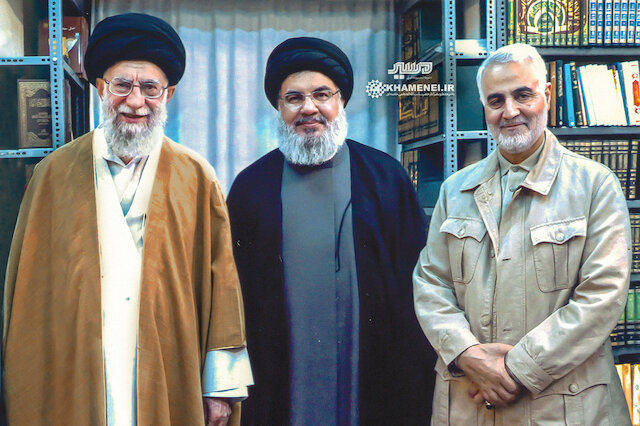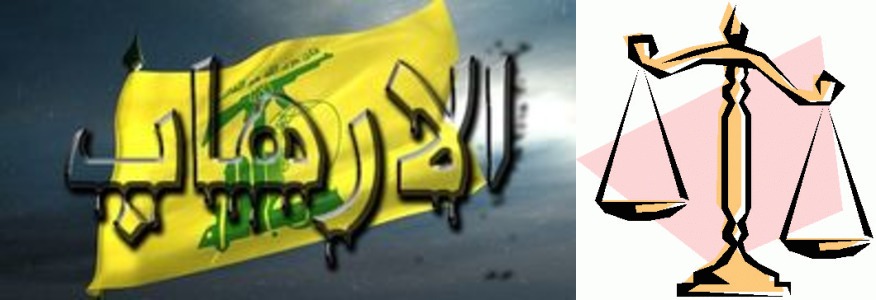Lebanese Zugzwang and Harlequin’s Choice/
Amir Taheri/Asharq Al-Awsat/May 08/2020
الخيار اللبناني الوحيد وخيار المهرج
أمير طاهري/الشرق الأوسط/08 أيار/2020
مع استمرار الاحتجاجات اللبنانية بدرجات متفاوتة، تعددت التكهنات حول سبب الأزمة الحالية بدرجات متفاوتة أيضاً.
قائمة المشاكل التي يعاني منها لبنان طويلة، فهناك أزمة مصرفية سببها خطة قدمها البنك المركزي قبل ثلاث سنوات لجذب الأموال الأجنبية. كذلك أدت الانخفاضات الأخيرة في أسعار النفط إلى انخفاض حاد في تحويلات اللبنانيين العاملين في الدول الغنية بالنفط، لكنهم في النهاية يبنون أعشاشهم في الوطن. الخدمة المدنية المنتفخة التي أنشأها ساسة يحاولون شراء الأصوات أو كسب المال مع طوائفهم من خلال اختراع وظائف غير ضرورية باتت مرهقة للغاية بالنسبة للاقتصاد المتعثر. كذلك تجاوز الفساد، شأن الحال في الكثير من الدول النامية، حدود الانحراف ليصبح أسلوب حياة تقريباً.
أضف إلى كل ذلك أزمة سياسية طويلة الأمد سببتها الطريقة التي يوزع بها النظام الطائفي السلطة؛ ولذلك ستهبّ عاصفة لا محالة. بشكل عام، من المؤكد أن غالبية اللبنانيين غير راضين عن وضعهم الحالي ويشعرون بقلق من المستقبل، والعنصران يعتبران مكوناً أساسياً لمجموعة من المظالم التي تحرض الأمة على الثورة.
ومع ذلك، ماذا لو كان السبب الحقيقي للخيار الوحيد الحالي في مكان آخر، في مكان ما وراء الإدارة الاقتصادية المتهالكة والفساد على غرار دول العالم الثالث؟
قد يكون ما يواجهه لبنان إعادة تعريف لوجوده كدولة قومية. فالدول القومية يجري بناؤها وفق نموذج يعكس محتوى جوهرها وشكل وجودها ورؤية مستقبلها.
لبنان هو إحدى تلك الدول المصممة لتعكس التنوع الداخلي، وبناء مكان على الساحة الدولية ملاذاً للسلام والإبداع والحوار والتبادل والحلول الوسط من قبل القوى الخارجية المتنافسة.
قد يكون من الكليشيهات الإشارة إلى أن لبنان من المفترض أن يكون سويسرا شرق أوسطية مثلما أن الأوروغواي هي ملاذ سلام في أميركا الجنوبية، وسنغافورة في آسيا، والنمسا في أوروبا الوسطى. فلبنان يزدهر كلما لعب ذلك الدور. وكلما ابتعد عن هذا الدور، أو طرد منه من قبل القوى الأجنبية زادت معاناته.
في عام 1958، بعد عقد من الاستقلال مباشرة، صنف صندوق النقد الدولي لبنان أغنى دولة في الشرق الأوسط وشمال أفريقيا من حيث الناتج المحلي الإجمالي لكل فرد من السكان. في تقرير صندوق النقد الدولي الأول عن المنطقة، صنفت ليبيا على أنها أفقر دولة، بينما جاءت تركيا في المرتبة الثانية بعد لبنان، وإيران في المركز الخامس بعد مصر. والأهم من ذلك أن لبنان لعب دوراً ثقافياً رائداً فيما كان سيتم تسويقه باسم «العالم العربي» منذ ستينات القرن العشرين فصاعداً.
على الرغم من وجود مطبات على الطريق، بما في ذلك الاشتباكات الطائفية التي غالباً ما يتم رسمها من قبل قوى أجنبية متنافسة، تمكن لبنان من بناء شعور بالوطنية اللبنانية، وهو ما يعلم الجميع صعوبة إدراكه.
لبنان دولة متوسطية ذات تقاليد بحرية عمرها 5000 سنة. وفي الوقت نفسه، هو إحدى أقدم قطع الإمبراطوريتين الرومانيتين، في الغرب والشرق، وهو أيضاً إحدى المناطق التي رحبت بالمسيحية. وأخيراً وليس آخراً، أضاف لبنان طبقة من الإسلام والعروبة إلى هويته الثرية كجزء من الإمبراطوريات الأموية والمملوكية والإمبراطورية العثمانية في نهاية المطاف، وجاءت الفترة الوجيزة خلال الانتداب الفرنسي لتضيف ظلاً آخر.
يمكنك أن تطلق عليها محاولة تغيير النموذج إن أردت، لكن ما نشهده هو محاولة تحطيم ذلك اللبناني ليحل محله آخر بهوية جديدة يكون فيها لبنان مخبأ أمامياً لثورة شيعية يقودها الملالي من طهران.
ففي هذا الإطار، قال آية الله محسن أراكي، رئيس مكتب التقارب بين الجماعات الإسلامية في طهران، «لبنان هو القاعدة الأكثر تقدماً لجبهة المقاومة». وبالنسبة لآية الله علي يونس، مستشار الرئيس حسن روحاني، فإن بيروت هي واحدة من أربع عواصم عربية «نسيطر عليها الآن».
في المقابلة الصحافية الوحيدة التي أجراها، يروي الجنرال قاسم سليماني كيف سافر إلى لبنان كلما أحب هو ورفاقه المسلحون من دون الحاجة إلى تأشيرة، ولم يشعروا قط بالحاجة إلى الاتصال أو إخبار أي شخص من الحكومة اللبنانية.
كان لبنان مجرد جزء من الإمبراطورية «الناشئة» التي كان يحاول بناءها من أجل المرشد علي خامنئي. اليوم، تعتقد طهران أنها نجحت في فرض نقلة نوعية على طريق إنشاء لبنان أحادي اللون ليحل محل قوس قزح في لبنان.
انعكس ذلك في مقابلة أجراها للصحافة الإيرانية آية الله حاجي الصادقي، الممثل الخاص لخامنئي في «الحرس الثوري »، روى فيها عن رحلة قام بها إلى بيروت، حيث أمضى «ليلة كاملة» مع حسن نصر الله قدم خلالها زعيم «حزب الله» اللبناني تقريراً مفصلاً عن خطته لمحو إسرائيل من على الخريطة، أو إنهاء المأدبة الإسرائيلية.
وقد أكد نصر الله للصادقي أن تنصيب حكومة مدعومة بالكامل من قبل «حزب الله» يعني «استعداد لبنان الكامل» لتحمل مسؤولياته في «جبهة المقاومة».
من المحتمل أن يكون نصر الله قد كثّف من درجة خضوعه لطهران للتأكد من استمرار تدفق الأموال الإيرانية إلى جيوبه.
ومع ذلك، ليس هناك شك في أن طهران تشعر بأنها حققت هدفها في السيطرة الكاملة على لبنان من خلال تشكيل حكومة «إجماع» حسان دياب التي يكون لـ«حزب الله» فيها الكلمة الأخيرة في القضايا الرئيسية.
قد يكون اعتقاد علي خامنئي بأنه الآن المتحكم في مصير لبنان سابقاً لأوانه على أقل تقدير. فبناء الإمبراطورية ليس بهذه السهولة، خاصة عندما يظهر الإمبراطور المحتمل عارياً في أرضه.
قد تكرر الحكومة اللبنانية الجديدة تجربة الخادم المهرج في قصة «خادم لسيدين» لكارلو جولدوني، محاولاً إرضاء كليهما، لكنه يفشل مع كليهما.
على رئيس الوزراء دياب أن يحل مشاكل لبنان في الوقت الذي يخدم فيه مخططات آيات الله الغريبة لبناء الإمبراطورية.
إن مصالح لبنان اليوم لا تتوافق مع مصالح الجمهورية الإسلامية في إيران، حيث يحتاج لبنان إلى الاستقرار والسلام لإنعاش اقتصاده من خلال جذب الاستثمار الأجنبي وإحياء السياحة وتطوير نفسه كمركز قائم على الخدمات للتجارة الدولية والصناعات ذات التقنية العالية. وعلى النقيض من ذلك، فإن الجمهورية الإسلامية، كقوة تعديلية تسعى إلى إعادة تشكيل الشرق الأوسط إن لم يكن العالم كله، تزدهر مع التوتر والصراع.
يريد أحد السيدين أن يرى لبنان شاطئاً، في حين يريده الآخر أن يكون مخبأ. في الحياة الواقعية، على عكس المسرح، على المهرج أن يختار.
Lebanese Zugzwang and Harlequin’s Choice
Amir Taheri/Asharq Al-Awsat/May 08/2020
As Lebanese protests continue, albeit with varying degrees of intensity, speculation over what has caused the current crisis is also rife.
The list of woes that afflict Lebanon is long.
There is a banking crisis caused by a Ponzi-like scheme introduced by the Central Bank three years ago to attract foreign money. Recent falls in oil prices have led to a sharp drop on remittances by Lebanese working in oil-rich countries but building their egg-nests back home. A bloated civil service, created by politicians trying to buy votes or curry favor with their respective sects by inventing unnecessary jobs is becoming too costly for an ailing economy. Corruption, the bane of many developing nations, has gone beyond the limits of an aberration to become almost a way of life.
Add to all that a prolonged political crisis caused by the way the sectarian system distributes power and one would have a perfect storm.
All in all, it is certain that a majority of Lebanese are unhappy about their current situation and worried about the future, the two key ingredients of a cocktail of grievances that incites a nation to revolt.
However, what if the real cause of the current zugzwang is somewhere else, somewhere beyond shabby economic management and Third World-style corruption?
What Lebanon is facing may be a redefinition of its existence as a nation-state. All nation-states are constructed in accordance with a paradigm that reflects the content of their essence, the shape of their existence and the vision of their future.
Lebanon is one of those states destined to reflect internal diversity and build a place in the international arena as a haven for peace, creativity, dialogue, exchange and compromise by rival outside powers.
It may be a cliché to suggest that Lebanon is meant to be a Middle Eastern Switzerland just as Uruguay is a haven of peace in South America, Singapore in Asia and Austria in Central Europe. Whenever Lebanon played that role it thrived. Whenever it diverged from that role, or was pushed out of it by foreign powers, it suffered.
In 1958, barely a decade after independence, Lebanon was classed by the International Monetary Fund (IMF) as the richest country in the Middle East and North Africa in terms of gross domestic product per head of population. In IMF’s first report on the region, Libya was classed as the poorest nation while Turkey came second after Lebanon and Iran was fifth after Egypt. More importantly, Lebanon played a leading cultural role in what was to be marketed as “the Arab World” from the 1960s onwards.
Despite bumps on the road, including sectarian clashes often plotted by rival foreign powers, Lebanon managed to develop a sense of Lebanese-ness, Libanité in French, which everyone knows is hard to achieve.
In that Libanité, Lebanon is a Mediterranean nation with a seafaring tradition going back 5,000 years. At the same time, it is one of the oldest chunks of the two Roman Empires, west and east, and one of the first regions to welcome Christianity. Last but not least, it added a layer of Islam and Arab-ness to its rich identity as part of the Umayyad, Mameluke and ultimately Ottoman empires. A brief stint under French mandate added yet another shade.
Call it an attempt at paradigm shift if you like but what we witness is an attempt at effacing that Libanité to replace it with a new identity in which Lebanon is a forward bunker for a pan-Shiite Revolution led by the mullahs from Tehran.
“Lebanon is the most advanced base of the Resistance Front,” says Ayatollah Mohsen Araki, head of the Office for Convergence of Islamic Communities in Tehran.
To Ayatollah Ali Yunesi, an adviser to President Hassan Rouhani, Beirut is one of four Arab capitals that “we now control.”
In his one and only press interview the late General, Qassem Soleimani, relates how he traveled to Lebanon whenever he and his armed companions liked without any visa and never felt a need to contact or inform anyone from the Lebanese government.
Lebanon was just part of the “emerging” empire that he was trying to build for Supreme Guide Ali Khamenei.
Today, Tehran believes it has succeeded to impose a paradigm shift on the way to creating a monochrome Lebanon to replace the rainbow of Libanité.
This was reflected in an interview granted to Tehran press by Haji Sadeqi, Khamenei’s Special Representative in the Revolutionary Guards.
In it, Sadeqi relates a trip he made to Beirut where he spent “a whole night” with Hassan Nasrallah during which the Hezbollah leader offered a detailed report on his plan to “wipe Israel off the map” or “terminate the Israeli banquet.”
Sadeqi was assured that the installation of a government fully backed by Hezbollah and answerable to it would mean “full readiness by Lebanon” to assume its responsibilities in the Resistance Front.
To be sure, it is possible that Nasrallah, a wily politician, may have thickened the sauce of his subservience to Tehran to make sure Iranian cash continues to flow into his pockets.
Yet, there is no doubt that Tehran feels it has achieved its objective for full control in Lebanon by installing Hassane Diab’s “consensus” Cabinet in which Hezbollah has the final word on key issues.
Khamenei’s belief that he is now the master of Lebanon’s destiny may be premature to say the least. Empire building isn’t that easy, especially when the would-be emperor appears naked in his own turf.
The new Lebanese government may repeat the experience of Harlequin in Goldoni’s “Servant of Two Masters”, trying to satisfy both and failing with both. Diab must solve Lebanon’s problems while serving the ayatollahs’ weird schemes for empire building.
Lebanon’s interests today do not coincide with those of Iran. Lebanon needs stability and peace to revive its economy by attracting foreign investment, reviving tourism and developing itself as a service-based hub for international trade and high-tech industries. In contrast, Iran, as a revisionist power seeking to reshape the Middle East if not the whole world, thrives on tension and conflict.
One master wants Lebanon to be a beach, the other sees it as a bunker. In real life, as opposed to theater, at some point Harlequin must choose.




















